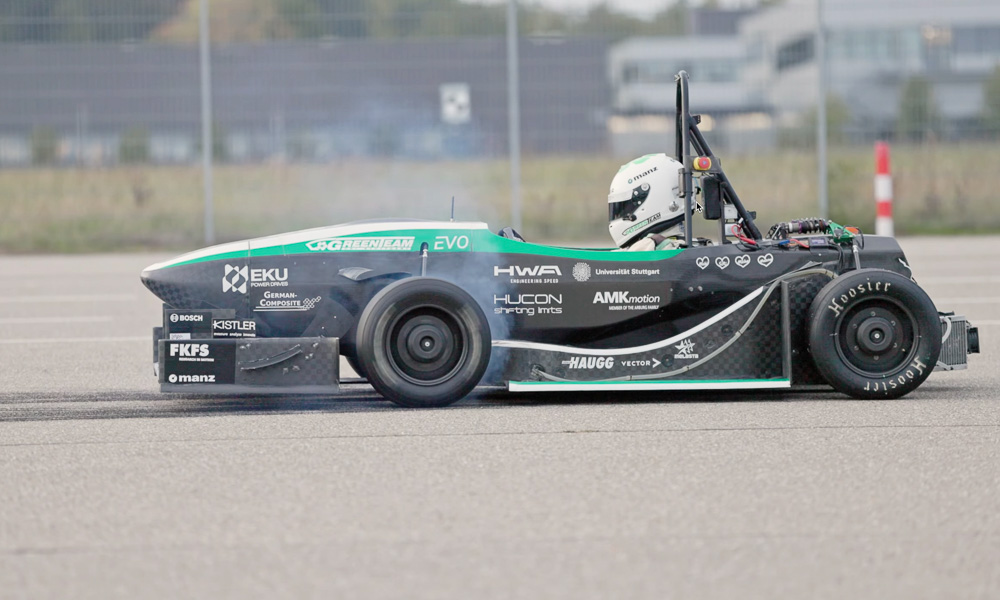
Electric cars are fast. We all know that by now. The instant torque and being able to provide 100% of the power 100% of the time make EVs a ton of fun when you mash the right pedal into the floor, and feel your brain impacting the back of your skull. Just how fast they can really be has just been proven again with a new 0-to-100km/h world record for juiced-up vehicles: 1.461 seconds was all it took from a complete standstill.
Who broke the record? Was it Tesla with its new roadster? Rimac or some other exotic supercar maker? Nope, it was a bunch of students from Stuttgart, Germany.
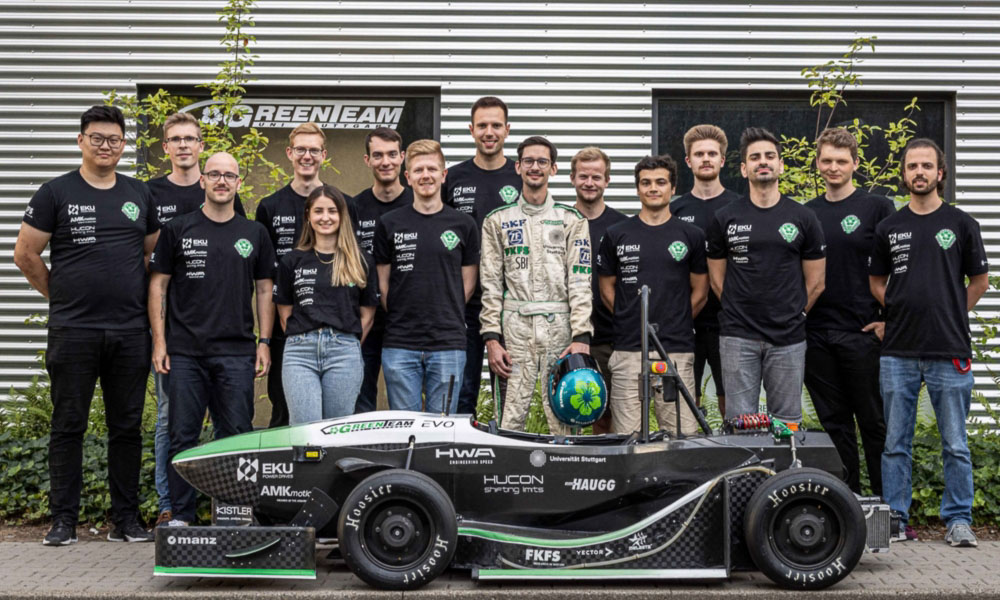
If you wanted to create an ICE car capable of accelerating from a standstill to 100km/h in just 1.4 seconds, you would need some serious engineering firepower and a huge budget, as the effort involved would be absolutely ginormous. Do it with an EV, and things get a lot simpler and cheaper.
Okay, when we say simpler, we still mean you need some great minds and considerable effort, but the fact that 20 university students from Germany managed to pull this off shows you just how promising the world of alternative motoring really is.
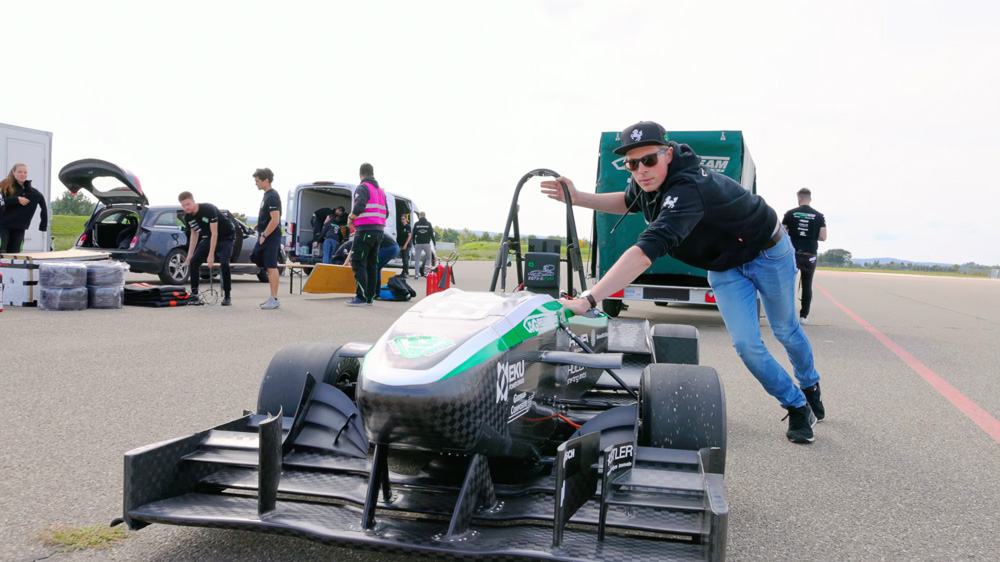
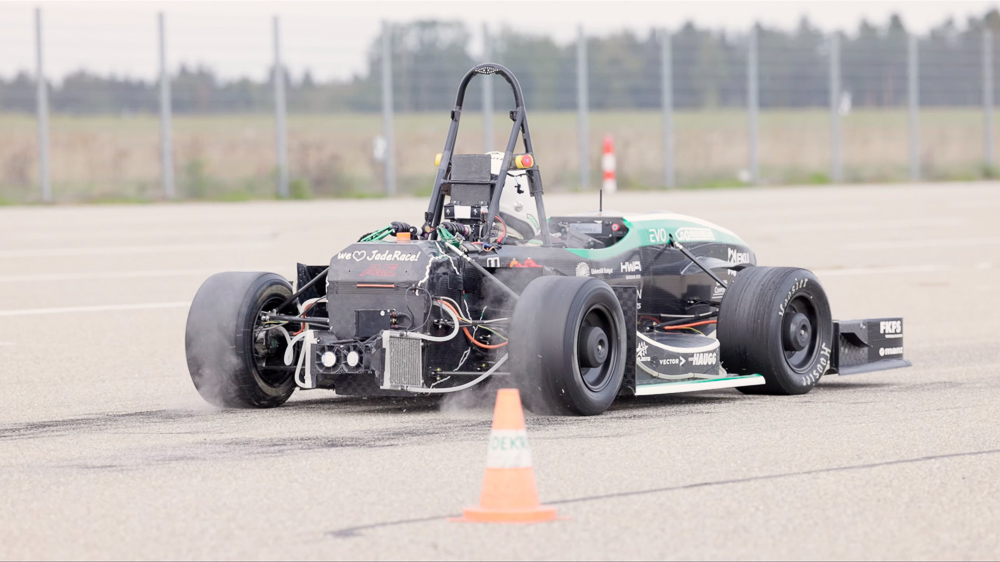
The so-called GreenTeam from the University of Stuttgart designed and built the tiny rocket ship you see here, and they didn’t do things by half. Made out of carbon fiber, this speed machine weighs just 145kg and churns out 180kW (241hp) of power through all four wheels.
That translates to a figure of 1,750hp per ton, placing it far above cars like the Bugatti Chiron, the Koenigsegg Jesko, or even the mad SSC Tuatara. Peak acceleration can snap your head back at 2.5G, and while it does look like a basic machine, most of its components (such as the electric motors) were developed entirely in-house.
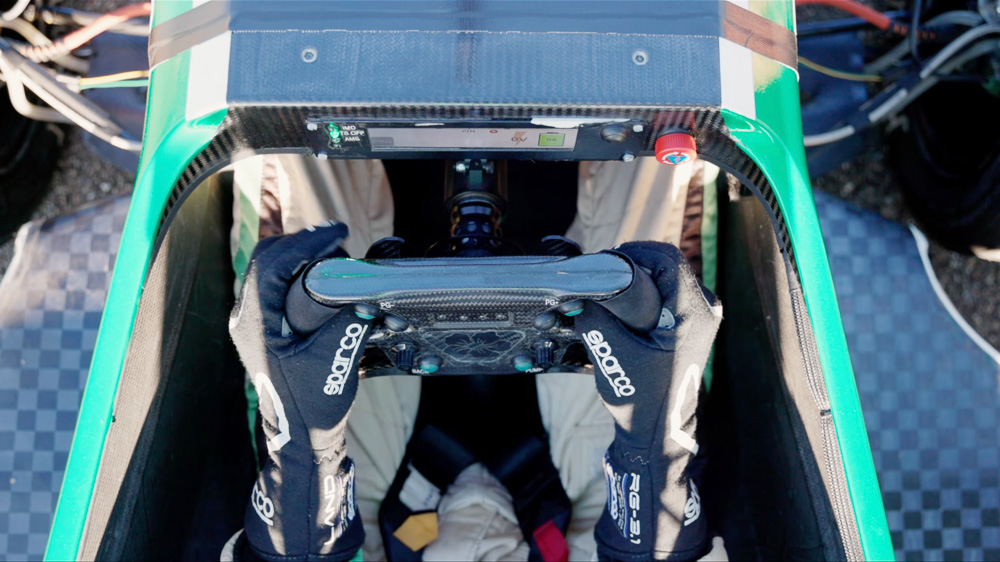
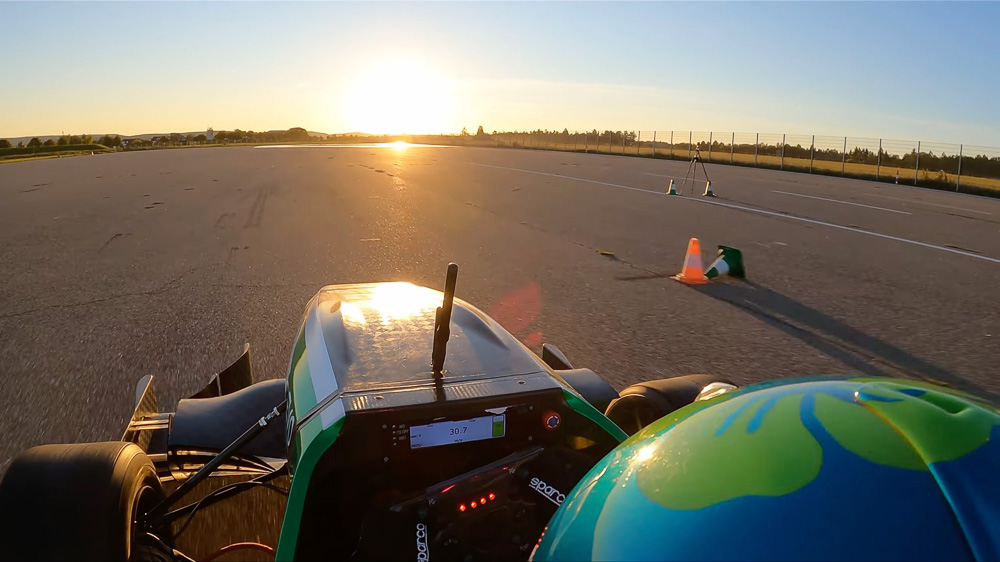
The new record was certified by the Guinness World Records, and it took the team around a year to prepare for it. They held the record before, but competing teams from around Europe kept snatching it from them—until now.
Back in 2012, the record stood at 2.681 seconds. Now it’s more than a second less, showing how much technology has progressed. No doubt the knowledge and the experience gained from this project will flow into German sports cars of the future. It’s not like there aren’t any car companies in Stuttgart that might be watching this group of students with interest. Oh, wait…

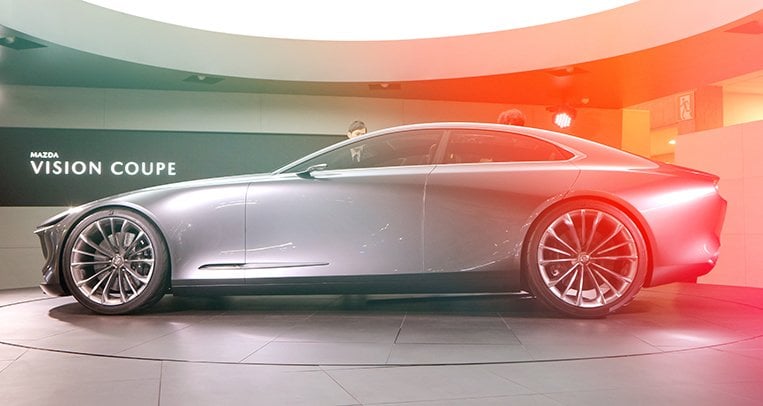

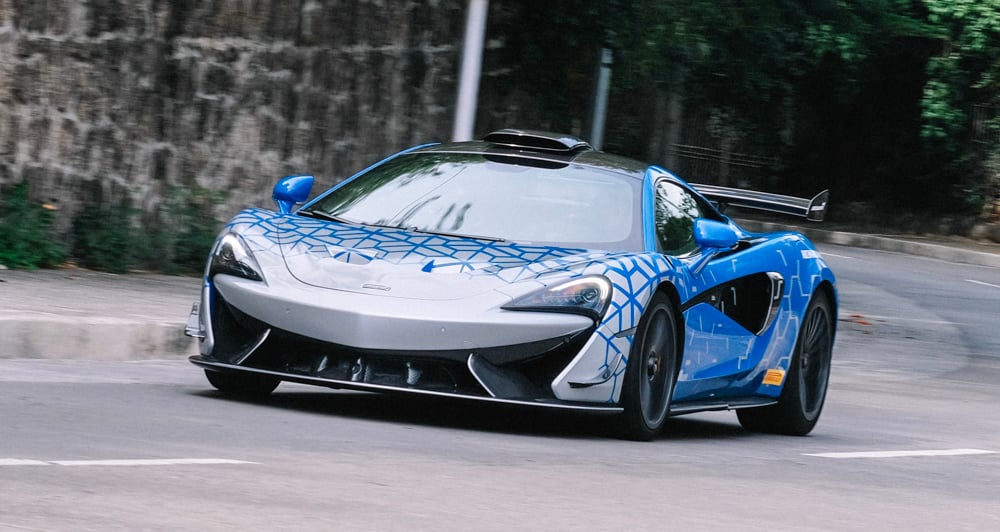

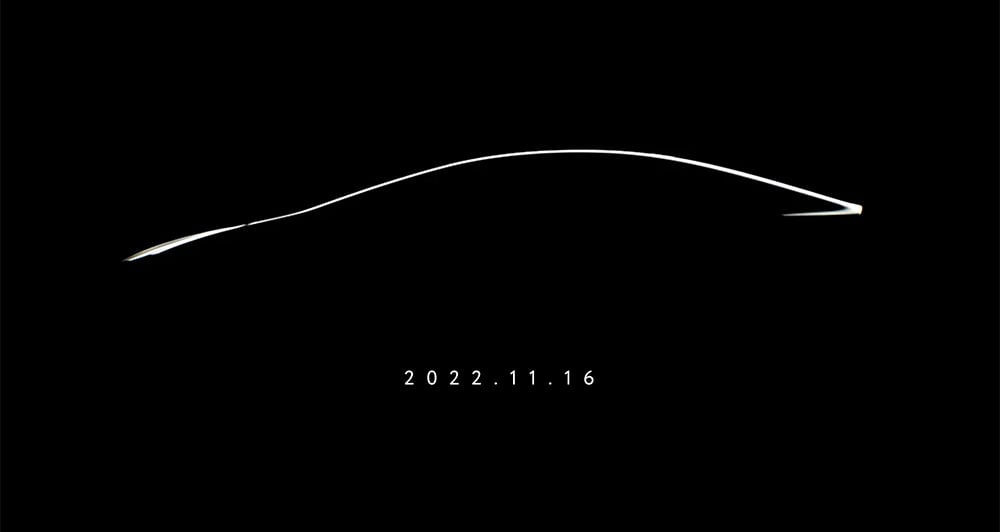

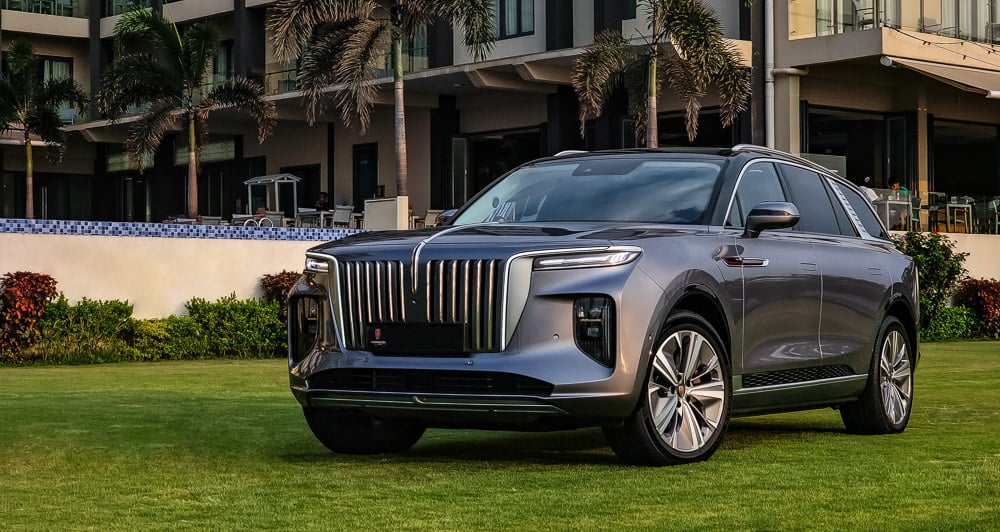



Comments